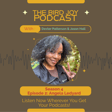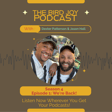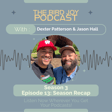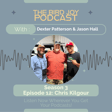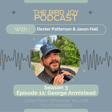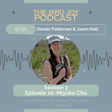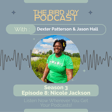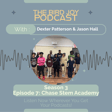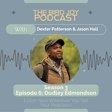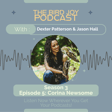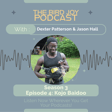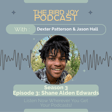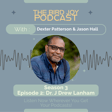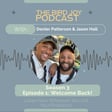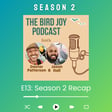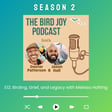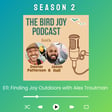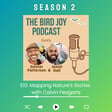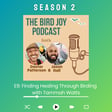
The Study of Birders with Jordan Rowley
Dexter and Jason sit down with Jordan Rowley on this week's episode. Jordan is a PhD student at Utah State University, where he focuses on the social science surrounding birders and birdwatchers. It’s like birding… but of people! The research is fascinating as it breaks down some of the demographics of birders and where they fall on different social scales. We research and discuss why things would break down that way. Dexter and Jason get a crash course on multi-species justice. We also discuss adventures and misadventures surrounding McGillivray's Warblers and Mountain Bluebirds. We get into the fantastic YouTube channel Bright Eyed Birding and discuss how it helps create a welcoming and inclusive community. Jordan puts us onto what he sees as the opportunity for a better birding community in his area and has us dreaming about Pink Robins and Montezuma Quail!
Join us this week as we have a convo with Jordan and spread some of that Bird Joy!!
Be sure to follow our podcast on Instagram at @thebirdjoypod and subscribe wherever you get your podcasts.
